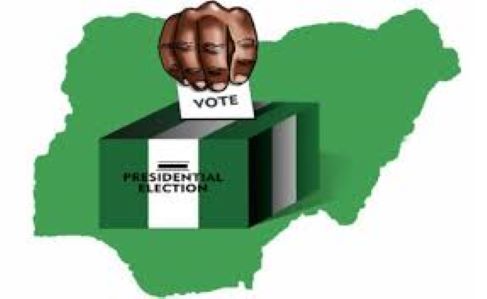In the wake of Abdallah el-Kurebe’s thought-provoking editorial, “Why Nigerians Don’t Vote—and Why Forcing Them Won’t Fix It,” published on May 18, 2025, on ASHENEWS, I found myself stirred—not just by the clarity of his argument, but by what was left unsaid. El-Kurebe’s central thesis is compelling: Nigeria’s low voter turnout reflects more than apathy—it is a symptom of a fractured system, scarred by distrust, electoral violence, and political redundancy. He rightly dismisses compulsory voting as a simplistic fix for a deeply complex problem.
But while his diagnosis is both honest and urgent, I believe it overlooks a more insidious ailment—not one of the system, but of the soul.
To illustrate this, allow me to recount a personal experience. During a university semester, Dr. Haruna Sule, a respected lecturer, circulated a digital questionnaire as part of his research on the effectiveness of online lectures. Initially, the post sat unnoticed—like many important messages on student platforms. Then came his follow-up: completing the questionnaire would count toward Continuous Assessment (CA). Within seconds, the platform exploded. Students who had previously ignored the link now rushed to complete the task. Screenshots were shared with pride, flooding the group with evidence of participation.
Whether Dr. Sule actually factored it into CA is beside the point. The real lesson was clear: obligation—or fear of consequences—motivated mass action, not genuine interest. What had been invisible became hyper-visible, all because of perceived personal impact.
This moment mirrors a national truth: Nigeria’s voter apathy is not only a product of broken systems or leadership failure—it also stems from a widespread, warped value system. We must face an uncomfortable reality: many Nigerians are simply uninterested in collective progress unless there’s something in it for them. It’s not just the politicians who have failed us. We, the citizens, are often complicit.
It’s a painful irony that while social media overflows with political opinions, public outrage, and passionate critiques, attempts to organize community meetings, alumni elections, or even simple online polls are often met with silence. Even among educated professionals, civic duties that require nothing more than a few minutes—like reading a community update or clicking on a poll—are ignored unless there’s an incentive.
This disconnect isn’t limited to national elections. It exists in our professional associations, alumni groups, and community development committees. I recall attending a town meeting during the holiday season. A respected guest speaker remarked, “I was excited to finally attend, considering how active our WhatsApp group is. But looking around at the empty seats, it’s clear: digital noise doesn’t equal real commitment.” His words rang painfully true.
Why do we show up only when it benefits us directly? Why does participation in communal responsibilities—be it voting, financial contributions, or volunteering—feel optional unless tied to rewards or penalties? The answer lies in our evolving mindset. Many Nigerians now view civic duties as favors they grant, not responsibilities they are bound to fulfill. The spirit of sacrifice is fading, replaced by a culture of convenience.
Yes, one could argue that economic hardship plays a role. Many are burdened by financial responsibilities and may struggle to justify travel expenses just to cast a vote. But these same individuals often find the time and resources to attend concerts, visit football viewing centers, or spend heavily on data subscriptions for entertainment. The difference lies in what we value.
We cannot continue to blame politicians for everything. While it’s true that electoral outcomes often feel predetermined and candidates appear indistinguishable, the refusal to vote while simultaneously criticizing those in power reflects a dangerous contradiction. It’s an act of surrender, masquerading as protest.
That’s why I propose a shift in strategy. Instead of mandating voting through coercive laws that threaten constitutional freedoms, Nigeria should explore a blend of incentives and mild consequences. Imagine this: in many workplaces, staff are already required to present evidence of community service for promotions. Why not extend that principle to voting? Electoral participation could count toward performance appraisals in both public and private sectors.
This idea is not without precedent. Countries like Australia, Belgium, Brazil, and Peru have adopted compulsory voting laws with varying degrees of success. Australia, for instance, saw a 19-point increase in voter turnout after implementing the policy in 1924. In Argentina and Brazil, compulsory voting applies to citizens aged 18 to 69, with modest penalties for abstention. Peru adjusts fines based on district poverty levels. In Schaffhausen, Switzerland, compulsory voting boosted turnout and shifted policy support toward public interest.
Of course, Nigeria’s context is unique. Imported policies must be adapted to local realities. This is where B.F. Skinner’s Operant Conditioning Theory becomes relevant. The theory posits that behavior is shaped by its consequences—rewards encourage repetition, while punishments discourage it. Positive reinforcement—such as public recognition or small voter incentives—could boost participation. Conversely, disincentives like limited access to government schemes or slower career advancement for non-participants could nudge civic behavior.
Teachers apply this method to foster discipline. Employers use it to drive productivity. There is no reason governments cannot employ the same approach to strengthen civic responsibility. However, caution is essential. Overreliance on external motivators risks eroding internal values. Behavioral models must be tailored, not imposed.
Ultimately, no law or incentive can substitute for a society that has lost faith in its collective voice. The battle against voter apathy is not just political—it is cultural, psychological, and moral. Until we learn to value duty over convenience and long-term impact over short-term gain, our elections will continue to suffer from ghost turnouts and empty promises.
Let us not merely fix the system. Let us fix ourselves.
Mohammed sends in this piece via bagudum75@gmail.com and can be reached at 07034943575.


